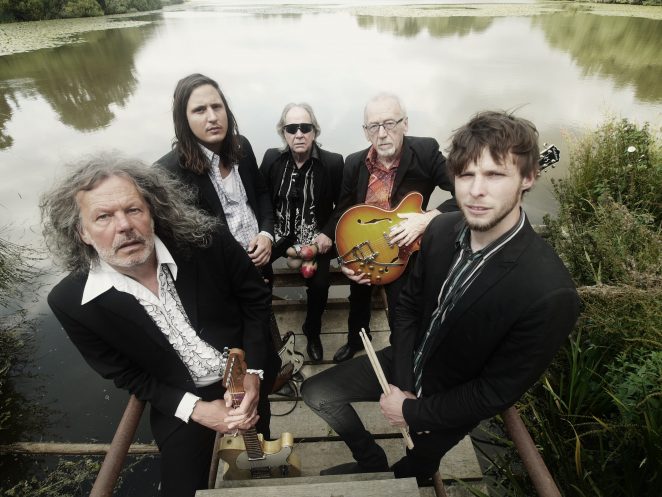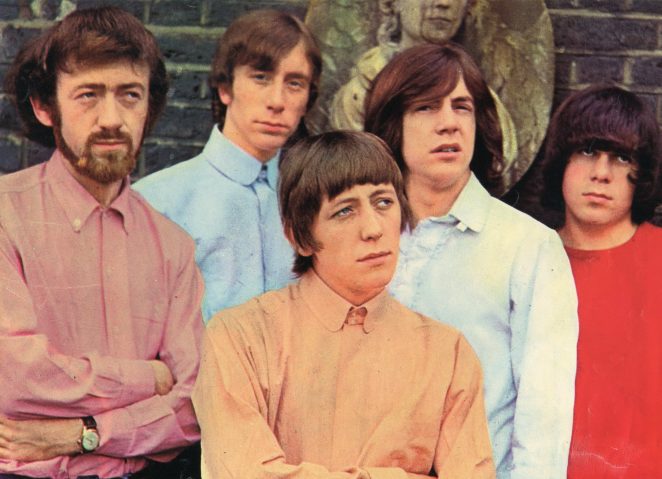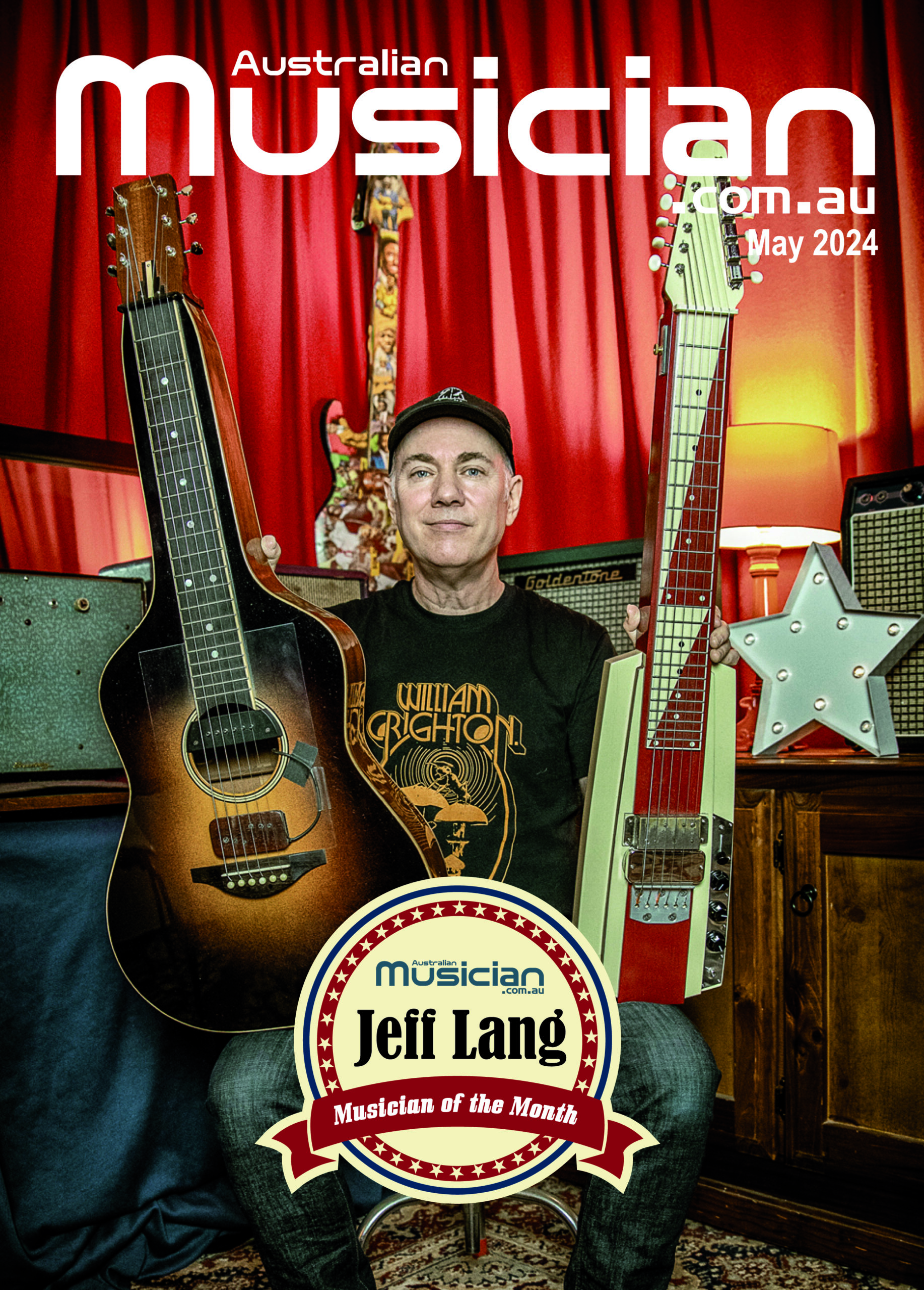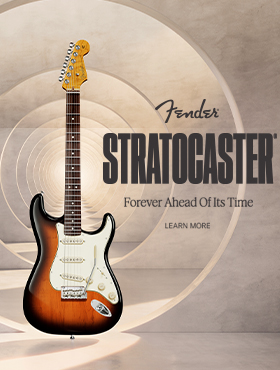
Formed in 1963 by vocalist Phil May and ex-Rolling Stones bass player Dick Taylor, The Pretty Things were one of numerous high energy rock bands that were part of the British Rock invasion that emerged out of London in the early sixties. While not as commercially successful as bands like The Beatles, Rolling Stones, The Kinks, The Who, Yardbirds etc, The Pretty Things still made a mark on the landscape and have been cited by many high profile musicians as an influence on their career. David Bowie paid the band a huge compliment in 1973 when he recorded two Pretty Things hits, Rosalyn and Don’t Bring Me Down for his covers album Pin Ups. It’s also been said that The Who’s Pete Townshend was motivated by The Pretty Things concept album S.F. Sorrow to write The Who’s rock opera Tommy, plus Joey Ramone was quoted as saying that The Pretty Things “Invented garage bands”. The Pretty Things hadn’t toured Australia until quite recently, when they headed down our way in 2012. The band now return for a farewell tour of Australia beginning in Sydney on October 3 before they wrap up officially with a special gig in London in December featuring special guests Van Morrison and David Gilmour.
Ahead of next week’s Australian tour Australian Musician’s Greg Phillips spoke to legendary guitarist and co-founder of The Pretty Things, Dick Taylor about the band’s colourful career.
Hi Dick, whereabouts in the world are you at the moment?
I’m sitting overlooking the city of Bern in Switzerland, which is pretty amazing. We play in a most extraordinary place which is like an old mill and decorated in a completely surreal way. There are five floors and on the very top floor there is a mechanical orchestra and then it gets more bizarre as you go down. There is one room which is full of movie star statues from the 50s, stuffed penguins, a giant lizard on the floor of the toilets, a very strange but wonderful place.
Sounds like after all these years, you’re still living the rock n roll lifestyle!
Well I dunno, I guess it is really. It’s all good fun
Why didn’t we get to see The Pretty Things in Australia until 2012?
After we played New Zealand and kind of got banned from there … although we did get to slide back in on the last tour down that way … anyway after that maybe people thought they ought to avoid us. It just never worked out. I mean, there are places we go to over and over like Europe but then there are places we go less often. It’s going to be lovely to get back to Australia because having done it once, it is such a brilliant place to play, the audiences are great and we seem to be appreciated there, so I am looking forward to getting back there.
How’s your memory after all these years? Do you recall the writing and recording of the hits?
Yeah pretty much, the funny thing is that Phil’s memory and mine do diverge at times and of course you always think you are the one who has it nailed.
What about the recording of your hit Rosalyn, did you have a good feeling about it at the time?
What actually happened was .. it wasn’t written by us, it was written by one of the guys who was our manager. One guy who was managing us was Brian Morrison, who became a very rich man in the end. Our recording career started because we were spotted by another guy called Jimmy Duncan and he introduced us to Fontana (record label), where we were contracted to for the first three years of our career. Jimmy brought us this song and it was him at the piano and it was pretty dull to be honest. We took it and thought we could do something with it. One of our favourite artists was Bo Diddley, so we thought let’s add Bo Diddley kind of beat to it and that’s generally pepped it up and turned into Rosalyn. If we had been smart, what we should have done when it came to royalties, we should have put … written by Jimmy Duncan and Bill Farley, who recorded it and arranged by The Pretty Things because it was pretty much transformed from something pretty dull into a good song.
Was there a sense of competition with other bands back in the day? Did you keep an eye on what each other were doing?
Kind of but there was a lot more camaraderie between the bands because there was room for everybody. Certainly by the time the Stones got Andrew Oldham managing them I think things started to get a bit, you know, he was pretty smart and ruthless. We appeared on a TV show called Ready, Steady, Go which was really popular and so did The Stones. We played what turned out to be our final performance on the show and a guy from the Rolling Stones organisation, Tony Colton, who died recently, came up to me and said you are never going to be on this again. I just thought, what did we do? Was it because my guitar strap came off? It was really bizarre. I always thought why? It was only recently that Tony was talking to our current manager and he said that it was basically The Stones’ management realised that in a way, maybe we were kind of a competition to them. Phil was pretty outrageous with his stage act and maybe they didn’t want that competition against them on Ready, Steady, Go. Which is totally weird because personally, we always got on fine with all of them. Mick and Keith came and sang a couple of numbers with us and Keith played guitar. I started off with them. back then … most of the time you would see people like Eric Burdon and I lived around the corner from Stevie Marriot. I was very good friends with Ronnie Lane. It was fun to be around at that time. You’d be in a club and meet up with Jimi Hendrix, Bob Dylan and such. So we are now doing one final show in December in London and Van Morrison is going to be a guest, that’s how well we all got on. Mostly we got on with everybody.
It’s great that you got Van to play at your farewell gig, his reputation is not that of a very social person …
Phil is a good friend of his but yes, don’t start, ha. I have to be very careful of what I say. I know he has a reputation of being awkward but with Phil and myself he has always been more than pleasant.
The Australian band The Easybeats were around in the UK in the 60s too, did you get to meet those guys at all?
Yes we did. I mean that’s a really interesting story that isn’t it with the whole AC/DC thing. In fact I got roped into doing an interview for a documentary talking about The Easybeats presence in England and they were really good I must say.

The Pretty Things were one of first bands signed to Led Zeppelin’s Swan Song label? Did you have any dealings personally with their manager Peter Grant?
Well I took a bit of a holiday during that time, so I wasn’t around but having said that, I did meet up with Peter Grant years later and he was really, really pleasant. He was a nice guy to be around but he certainly stood up for his artists. He didn’t muck around when it came to defending his artists’ rights. Jimmy Page was around always in those early days. In fact a couple of times people had said to me, oh that wasn’t you on the guitar it was Jimmy Page. Wrong, it was me. I think where that came from was on our second album Get The Picture, there was one song where Jimmy came into the studio and he co-wrote with Phil this song You Don’t Believe Me. I don’t remember if he did ended up playing guitar on it or if I did or we both did. Then on another song I used his little Danelectro guitar, which was lovely. Jimmy Page did so many sessions for so many people so I can see why some people were saying things.
What was your main guitar that you used most of the time back in the day?
I started off with a Harmony Stratotone. It has a Les Paul shape, no F-holes but a hollow body. It’s light with lots of knobs on it and 3 pickups. That was very nice but I must have sold it or traded it in or whatever. Then I got a 330 which I must say was probably my favourite guitar for ages and then upgraded to a 345 stereo guitar, which again was superb. On the day before we went to New Zealand, it got stolen. I finished up with a 335 and when I left the band for a while, the 335 stayed with them except they thought it would come with me so somehow, somewhere, somebody in the mix walked off with the 335. I have a couple of ideas of who it might have been but cest la vie … but the 330 with the P90 pickups is lovely.
Was there one particular music shop you’d visit for your guitars and strings etc in the 60s?
Probably mostly Micari’s in Charing Cross Road. It’s still Micari’s in Charing Cross Road which is really nice. Anthony Micari is the son of Mr Micari who started the shop and they actually produce Tone Bender fuzz boxes. I did an article for a book about them. I actually got given one, a modern one which is boxed in a smaller pedal, so it can do things like travel to Australia but it is a really nice fuzz pedal. I had a Fuzz face at one point which I got from them too.
An interesting thing I read was that you had a Gibson 12 string jumbo that you used with only six strings…
It either had 12 strings or 6 strings on it depending on what we wanted to do. On Honey I Need it is a 12 string. On a few things on the first and second albums I think it was a 12 string and then on SF Sorrow it was mostly a 6 string. Funnily enough it was also the guitar I used on Hurry on Sundown by Hawkwind because when I produced that, I took the solo on Hurry on Sundown and used the Gibson. Then I lent it to Hawkwind, who had all the gear stoled as well as the poor old Gibson Jumbo. Sounds awful doesn’t it having all of these guitars stolen! I have mostly kept hold of them since then. Actually the guitars I have at the moment I really love but probably won’t bring them to Australia. One guitar that I have which is really special is a Grammer acoustic which belongs to my wife. She bought it because she was told it was a women’s guitar. It has a slightly narrower neck like the Senorita classical guitars. It’s a metal string acoustic and it’s a Grammer, which I must admit I knew nothing about. Then I found out that a lot of country players played it and what is really interesting is that subsequently we found out that this particular was actually made for Dolly Parton, although we don’t have any way of proving it. I used it to play slide on and it has a really special sound, rather unique, a mellow sounding guitar.
On one of your Australian shows (The Thornbury Theatre), you are playing the entire SF Sorrow album. You were always known as an R&B rock band and then you brought out SF Sorrow, this psychedelic music. Who influenced you into going in that musical direction?
I think it was just the zeitgeitz or whatever you call it, the whole atmosphere of the time and the fact that we changed line up. John Stax came to Australia, so we lost our bass player and we got Wally Waller and Jon Povey (keyboards). Certainly I was into lots and lots of sorts of different music. It would stretch from Otis Redding to Sun Ra, The Doors and John Coltrane. Jon Povey was into some weird stuff as well. It wasn’t like we all took acid and went psychedelic, it wasn’t like that at all. On stage we’d always improvised a lot. After we did Emotions, which was the last album we did on Fontana, the contract had ended so we had a kind of a period where we were in between going to EMI from Fontana. We started working on demos and they just went off on a totally different direction. In the end that stuff became more mainstream because people like Pink Floyd were out there so what we were playing … was also a part of what pushed the music into a different direction, It just developed that way.
Is it true that when you were recording that album at Abbey Road, The Beatles and Pink Floyd were recording albums there too?
Absolutely. I’m not sure what album The Beatles were recording to be honest. People say it was Sgt Pepper but I think it was really The White album. They were certainly there at a very interesting time. We had a really good producer Norman Smith who oddly became ‘Hurricane’ Smith. He was our producer and very much into the stuff we were doing and that’s how it progressed.
David Bowie recorded two Pretty Things songs, Rosalyn and Don’t Bring Me Down for his covers album Pin Ups. Did that do much for the profile of the band at the time?
I think it was during the end of the Swan Song period and I don’t think I was in the band at the time because I missed a few years. Having said that, it didn’t really raise our profile at that time as much as you’d thought it might have done. Then later on lots of people mention it because it was really a great compliment, we were the only ones who had two songs on the album. David Bowie was always around when we started out. He was literally one of our first fans. It was a really great compliment but commercially probably didn’t do a huge amount for us.
How do you think The Pretty Things would have gone if social media and the internet were around back in 60s?
Oh we could have been enormous! Ha, literally how could you possibly know really. Youtube and Facebook helps a lot I think because we seem to be one of those bands whose performances get on the internet a lot. There’s masses of stuff out there. It certainly doesn’t do us any harm.
I was watching a recent clip of you guys playing live and you were still sounding pretty powerful!
Well thank you. We have got a young rhythm section and we reach across the generations. Having the young guys with us is very helpful for the energy coming from the rhythm section. We have always had a pretty vigorous stage show and Phil is still singing his heart out, so yeah, we equip ourselves pretty well.
THE PRETTY THINGS FAREWELL AUSTRALIA TOUR. OCTOBER 2018
WEDNESDAY 3RD OCTOBER – SYDNEY, FACTORY THEATRE
THURSDAY 4TH OCTOBER – BRISBANE, THE ZOO
SATURDAY 6TH OCTOBER – MELBOURNE, THORNBURY THEATRE (THE ONLY S. F SORROW MELBOURNE SHOW)
SUNDAY 7TH OCTOBER – MELBOURNE, CARAVAN CLUB
WEDNESDAY 10TH OCTOBER – GEELONG, BARWON CLUB
FRIDAY 12TH OCTOBER – MELBOURNE, THE TOTE
SATURDAY13TH OCTOBER – ADELAIDE, FOWLERS LIVE


